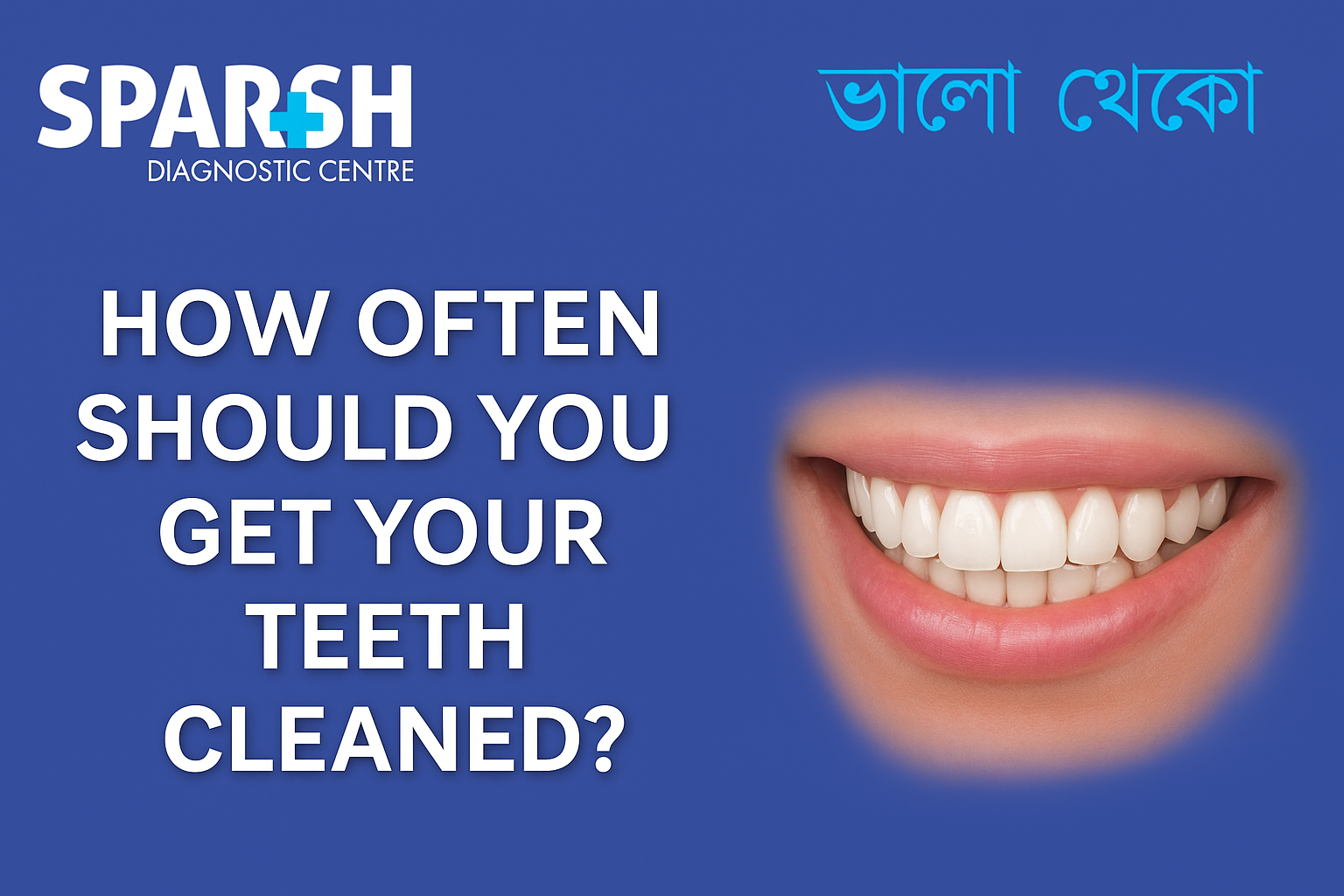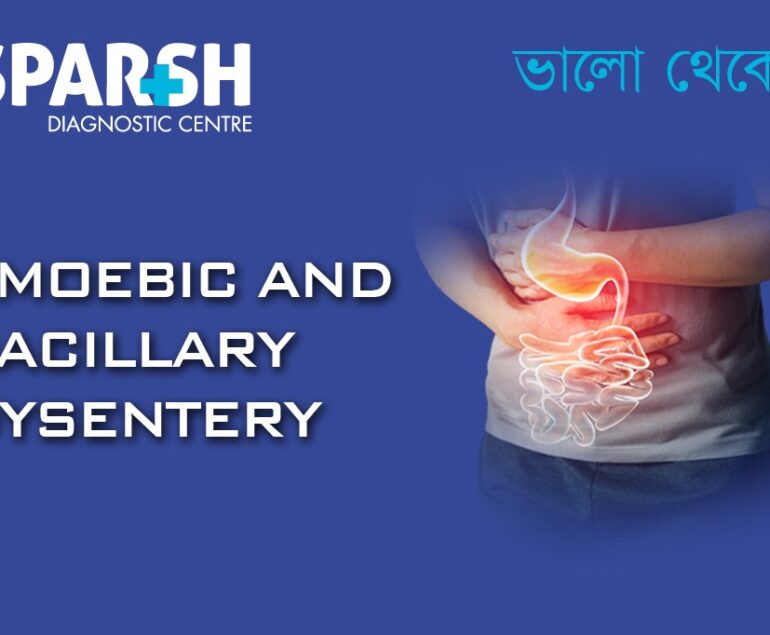Oral health is more than just having a bright smile—it plays a crucial role in your overall well-being. Professional teeth cleaning, also known as dental prophylaxis, helps remove plaque, tartar, and stains that regular brushing and flossing cannot eliminate. But a common question many people ask is: “How often should I get my teeth cleaned?”
The answer isn’t one-size-fits-all. While most dentists recommend a professional cleaning every six months, some individuals may need more frequent visits depending on their oral health, medical history, and lifestyle habits.
In this comprehensive guide, we’ll explore the importance of dental cleaning, factors that affect how often you should go, what happens during a cleaning, and why choosing a trusted dental care provider like Sparsh Diagnostic Centre’s advanced dentistry division ensures you receive the best care possible.
Why Are Regular Dental Cleanings Important?
Even with excellent oral hygiene at home, it’s almost impossible to remove all plaque and tartar buildup. Over time, this can lead to tooth decay, gum disease, and other oral health issues.
Key benefits of professional teeth cleaning include:
Prevents cavities by removing plaque buildup.
Protects against gum disease (gingivitis and periodontitis).
Freshens breath by eliminating bacteria.
Brightens your smile by removing surface stains.
Improves overall health as poor oral hygiene is linked to heart disease, diabetes, and respiratory issues.
Regular cleanings not only protect your oral health but can also save you money by preventing costly dental treatments later.
General Recommendation: Every Six Months
For most people, the standard recommendation is to visit the dentist for a professional cleaning twice a year (every six months). This schedule allows dentists to monitor your oral health closely and catch potential problems early.
However, this frequency may vary depending on your individual needs.
Factors That Influence How Often You Should Get Teeth Cleaned
Overall Oral Health
People with healthy gums and minimal plaque may need only two cleanings per year.
Those prone to cavities or gum disease may require more frequent visits.
Gum Disease (Periodontal Disease)
Patients with gum disease often need cleanings every 3–4 months to prevent progression.
Smoking and Tobacco Use
Smoking increases tartar buildup and risk of gum disease, requiring more frequent cleanings.
Diet and Lifestyle
High sugar intake, frequent snacking, and consumption of acidic foods can contribute to tooth decay, necessitating extra cleanings.
Age
Children and teenagers may need regular cleanings due to higher risk of cavities.
Older adults are more prone to gum disease and tooth sensitivity.
Medical Conditions
Conditions like diabetes, heart disease, or weakened immune systems increase the risk of oral infections, so dentists may recommend cleanings every 3–4 months.
Pregnancy
Hormonal changes during pregnancy increase the risk of gingivitis, making cleanings especially important.
What Happens During a Professional Teeth Cleaning?
Many people feel anxious about dental cleanings, but the process is simple, safe, and effective. A typical session involves:
Oral Examination – The dentist or hygienist checks for cavities, gum disease, or other issues.
Scaling – Plaque and tartar are removed using specialized tools.
Polishing – Teeth are polished to remove stains and smooth surfaces.
Fluoride Treatment (optional) – Helps strengthen enamel and prevent decay.
Oral Health Advice – Dentists provide guidance on brushing, flossing, and diet.
The entire process usually takes 30–60 minutes and leaves your mouth feeling fresh and clean.
Signs You May Need a Dental Cleaning Sooner
Even if your last cleaning was recent, you should schedule an appointment if you notice:
Persistent bad breath.
Bleeding gums while brushing or flossing.
Visible tartar or plaque buildup.
Tooth sensitivity or pain.
Receding gums.
Dark stains on teeth.
These could be signs of gum disease or early decay, and prompt attention can prevent serious problems.
How Often Children Should Get Their Teeth Cleaned
Children should start visiting the dentist as soon as their first teeth appear—usually by age one. Regular cleanings every six months help ensure proper development and teach kids healthy oral hygiene habits early.
For children with cavities, orthodontic braces, or poor oral hygiene, dentists may recommend more frequent visits.
How Often Adults Should Get Their Teeth Cleaned
Healthy adults: Every 6 months.
Adults with gum disease, diabetes, or other health conditions: Every 3–4 months.
Smokers or those with poor oral hygiene habits: More frequent cleanings as advised by the dentist.
Professional Cleaning vs. At-Home Care
While brushing twice daily and flossing are essential, they cannot replace professional cleaning. Dental tools can remove hardened tartar that toothbrushes cannot. Think of professional cleanings as a deep clean for your mouth, while daily care is regular maintenance.
Why Choose Sparsh Diagnostic Centre for Dental Cleaning?
At Sparsh Diagnostic Centre, we believe that a healthy smile is a reflection of overall wellness. Our state-of-the-art dentistry division is equipped with advanced technology and highly experienced dental professionals to ensure you receive world-class care.
Why patients choose Sparsh for dental care:
Comprehensive dental services including preventive, restorative, and cosmetic dentistry.
Advanced equipment for painless and efficient cleaning.
Experienced dentists and hygienists who personalize care based on your oral health.
Patient-friendly environment designed to reduce dental anxiety.
Focus on prevention to help you maintain long-term oral health.
Whether you need a routine cleaning or specialized dental treatment, Sparsh Diagnostic Centre is committed to keeping your smile healthy and bright.
Tips to Maintain Oral Hygiene Between Cleanings
Brush at least twice daily using fluoride toothpaste.
Floss once a day to remove plaque between teeth.
Limit sugary foods and drinks.
Drink plenty of water to wash away food particles.
Use an antibacterial mouthwash if recommended.
Replace your toothbrush every 3 months.
Avoid smoking and tobacco products.
Good home care, combined with professional cleanings, provides the best protection for your teeth and gums.
Frequently Asked Questions (FAQ)
1. How often should I get my teeth cleaned if I have gum disease?
Patients with gum disease typically need cleanings every 3–4 months to manage the condition effectively.
2. Can teeth cleaning whiten my teeth?
Professional cleaning removes surface stains, making teeth appear brighter, but it is not the same as professional whitening treatments.
3. Does teeth cleaning hurt?
Most cleanings are painless. Some patients may experience mild discomfort, especially if they have sensitive gums or significant tartar buildup.
4. Is dental cleaning necessary if I brush and floss daily?
Yes. Brushing and flossing help, but only professional cleaning can remove hardened tartar and detect early signs of dental issues.
5. At what age should children start getting dental cleanings?
Children should have their first dental visit by age one and continue with regular cleanings every six months.
6. Can dental cleaning prevent bad breath?
Yes. Cleanings remove plaque, tartar, and bacteria that cause persistent bad breath.
7. How long does a professional dental cleaning take?
A typical cleaning session lasts 30–60 minutes, depending on your oral health.
Regular dental cleanings are essential for maintaining a healthy mouth, preventing gum disease, and protecting your overall health. While the standard recommendation is every six months, your dentist may advise more frequent cleanings based on your individual needs.
By combining at-home oral care with professional dental cleanings, you can enjoy a healthy, confident smile for years to come.
At Sparsh Diagnostic Centre’s state-of-the-art dentistry division, we provide expert care tailored to your unique needs, ensuring your oral health is always in the best hands.
#BhaloTheko
Disclaimer:
No content on this site, regardless of date, should ever be used as a substitute for direct medical advice from your doctor or other qualified clinician.

![]()





